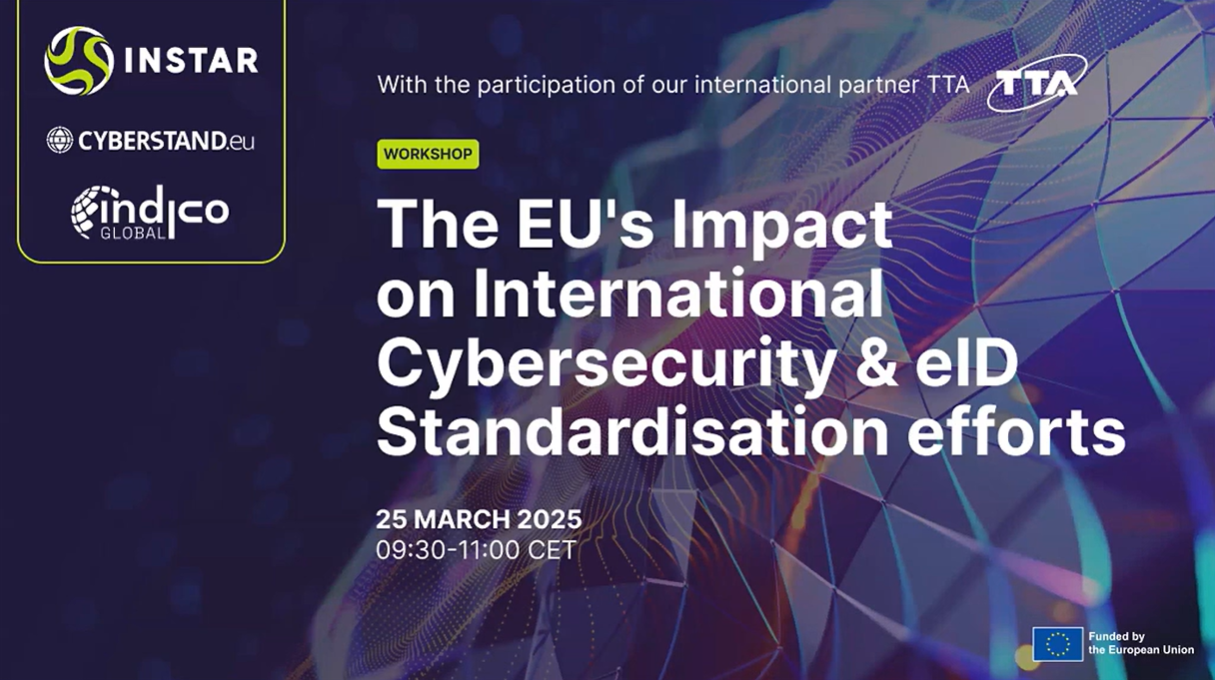
On 25 March 2025, Indico Global, co-hosted a webinar titled “The EU’s Impact on International Cybersecurity and eID Standardisation Efforts,” in collaboration with INSTAR and CYBERSTAND.eu.
The session brought together experts from the European Commission, standardisation bodies, industry, and academia to share updates on the evolving cybersecurity and digital identity landscape, with a strong focus on international cooperation, particularly with South Korea.
Here are some of the key takeaways from the discussion:
- The Cyber Resilience Act (CRA) is a pivotal EU regulation introducing mandatory cybersecurity requirements for hardware and software across the EU market. It places responsibility on manufacturers to assess and mitigate risks throughout a product’s lifecycle.
- While not all existing standards fully align with CRA, each CRA requirement is mapped to a potential standard for further development. The goal is to build on and adapt to international and European standards, with product-specific standards benefitting from presumption of conformity.
- Fragmentation in digital identity standardisation needs to be addressed. There’s a growing call for better coordination across SDOs, and alignment among government agencies before pushing forward on interoperability.
- The CRA will eventually repeal the RED, shifting the compliance framework. Most products are expected to fall under basic CRA obligations, and harmonised standards under RED provide a foundation for CRA-related standardisation work.
- South Korea’s cybersecurity regulations are rooted in national laws, with strong focus on data and infrastructure protection. Aligning with CRA presents opportunities — but also complexities — due to differences in legal frameworks and regulatory philosophies.
- The Brussels Effect — where EU rules shape global standards — was highlighted in relation to eIDAS and its global influence. The African Union’s development of a pan-African trust framework echoes this, with potential leapfrogging toward digital identity using digital wallets.
- Trust-building across borders is advancing. For instance, the qualified electronic signature use case between the EU and Ukraine shows how mutual recognition and trust lists can enhance interoperability and support smoother digital trade and services.
- The European Digital Identity Wallet (EUDI Wallet) was cited as a high-potential solution for cross-border digital identity interoperability, thanks to its clear regulatory basis, technical consistency, and EU-wide implementation.
Missed the webinar? Watch the full recording here.





